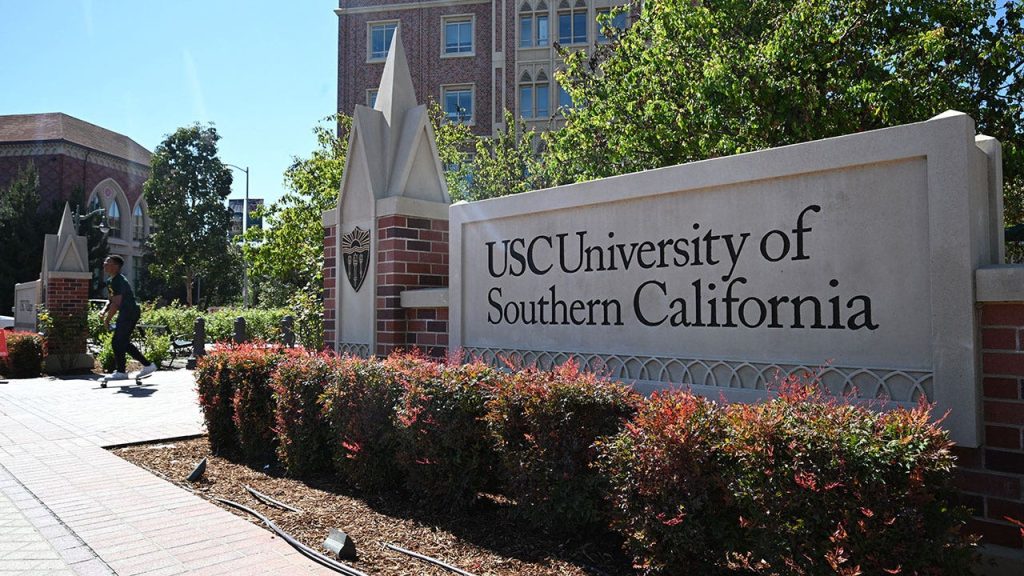USC has made the decision to scrap all outside speakers for this year’s commencement ceremony in the wake of controversy surrounding a Muslim student being denied the opportunity to give her valedictorian speech. The university cited safety concerns as the reason for this decision, emphasizing the importance of maintaining campus security. The cancellation of the student’s speech came after she made social media posts about Israel, advocating for the abolition of the country in its current form. The decision to cancel her speech was met with backlash from some who accused the university of denying her freedom of speech, while others supported the move as necessary to protect the safety of the campus.
The university’s decision to cancel outside speakers for the commencement ceremony has sparked debate about the balance between free speech and safety on college campuses. The student whose speech was canceled, Asna Tabassum, defended her views on Israel and asserted her right to express her beliefs. She claimed that her stance on human rights, including support for Palestinians, was the motivation behind her controversial social media posts, which led to her speech being canceled. Tabassum’s remarks following the cancellation of her speech have reignited discussions about antisemitism and Islamophobia, with some criticizing the university for presenting her as a victim while others accused her of denying Jewish self-determination.
Despite the controversy surrounding the student valedictorian’s speech, USC remains committed to celebrating its graduates through a series of satellite ceremonies, celebrations, receptions, and other events. While the decision to cancel the student’s speech has overshadowed the commencement proceedings, the university has expressed its intention to confer honorary degrees upon external speakers and honorees at future ceremonies. The cancellation of outside speakers for the main stage event reflects USC’s efforts to prioritize safety and security while honoring the achievements of its graduating class. The university’s stance on freedom of speech and campus safety continues to be a topic of discussion in light of recent events.
The cancellation of outside speakers at USC’s commencement ceremony highlights the challenges that universities face when balancing the values of free speech and student safety. The decision to cancel the valedictorian’s speech has drawn attention to the delicate balance between upholding academic freedom and taking measures to ensure campus security. Some have criticized the university for limiting the student’s right to express her views, while others have supported the decision as necessary to prevent potential security threats. USC’s approach to these issues reflects the broader debate surrounding free speech, academic freedom, and campus safety in higher education institutions.
The controversy surrounding the cancellation of the student valedictorian’s speech has raised questions about the role of universities in navigating sensitive political and social issues. USC’s handling of the situation has sparked discussions about the responsibilities of educational institutions in fostering an inclusive and respectful environment for all students. The student’s statements about human rights and the Israeli-Palestinian conflict have reignited debates about antisemitism, Islamophobia, and freedom of speech on college campuses. As USC moves forward with its commencement ceremonies, the university faces a challenge in addressing these complex and divisive issues while upholding its commitment to academic excellence and student well-being.
In conclusion, USC’s decision to cancel outside speakers for this year’s commencement ceremony reflects the university’s efforts to prioritize safety and security in the wake of controversy surrounding a student valedictorian’s speech. The cancellation of the student’s speech has reignited debates about free speech, campus safety, and the responsibility of universities in addressing sensitive political and social issues. As the university prepares to celebrate its graduating class through a series of events, the focus remains on honoring academic achievements while navigating the complexities of divergent viewpoints and ensuring a respectful and inclusive environment for all students. USC’s handling of this situation underscores the challenges that institutions of higher education face in balancing competing priorities and values in today’s complex social and political landscape.


